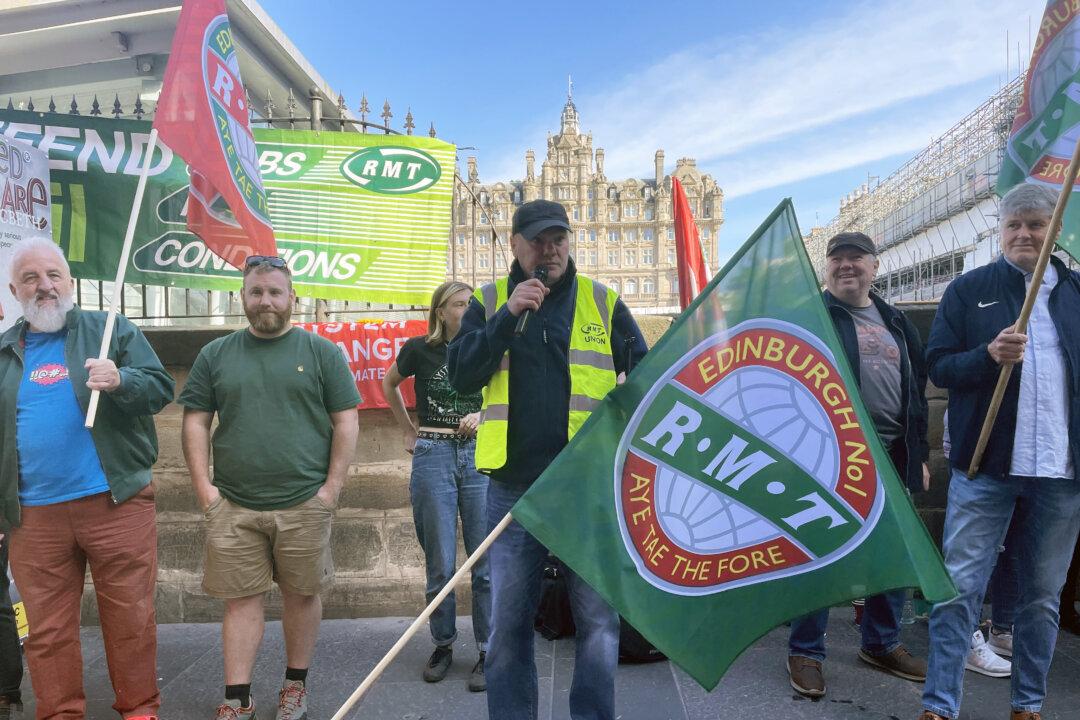British rail passengers are suffering fresh travel chaos after thousands of workers walked out on strike, crippling services across the country.
Some 40,000 members of the Rail, Maritime, and Transport (RMT) union at Network Rail and 14 train operators went on strike on July 27, and the Transport Salaried Staffs’ Association (TSSA) has also announced a strike by its members at Avanti West Coast.





